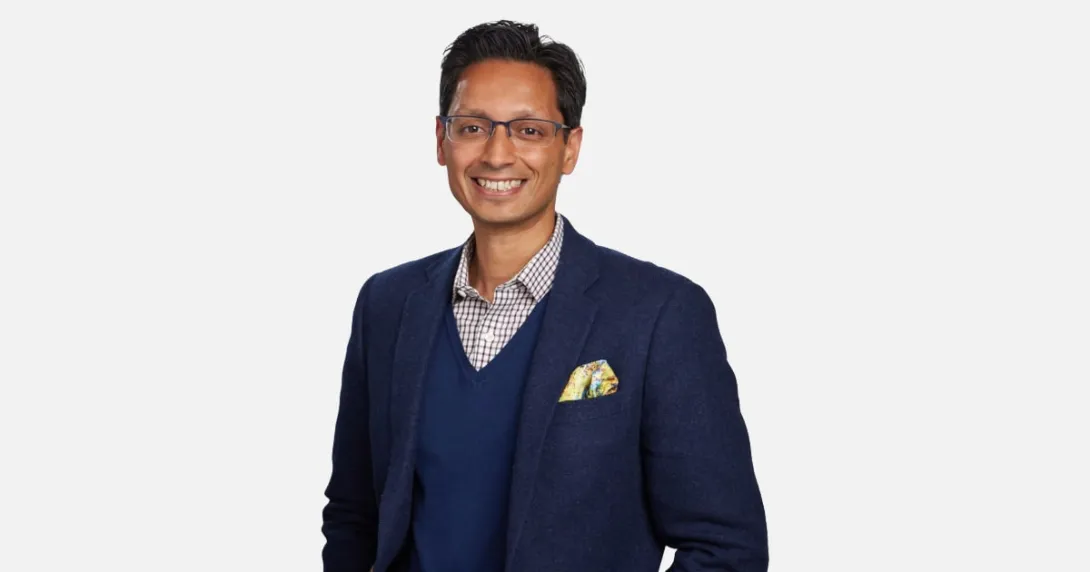
Data sharing technology company Datavant finalized its acquisition of real-world evidence platform Aetion last week.
The companies plan to leverage their capabilities to create an end-to-end offering on data discovery, linkage, privacy, curation and advanced analysis. Arnaub Chatterjee, president and GM of life sciences at Datavant, sat down with MobiHealthNews to discuss the acquisition and how it will integrate Aetion's offerings.
MobiHealthNews: How will the acquisition of Aetion help Datavant expand its portfolio?
Arnaub Chatterjee: So, a few different angles. If we just focus on the life sciences business of Datavant, we have built the most robust ecosystem of different real-world data partners, and one of the key theses behind buying Aetion was, can we leverage their products, tooling and expertise to create more visibility, better answers to scientific questions, and really help find and interrogate the data that is sitting on our platform?
So, we probably have 330 different data partners that are on the Datavant token, and those companies are all over the data verse – claims data companies, genomics data companies, EMRs – but they are all trying to build and create stronger, more robust data sets, and Datavant's obligation here is to increase visibility to allow customers, whether they are on other partners or whether they are in the life sciences world or public sector agencies, like, how do you get better answers to the fact that all this data exists, but it is really hard to understand which set of data is going to answer which question.
I also think one of the big theses behind [Aetion] is they bring up a world-class set of expertise with regulatory experience, with epidemiology experience.
If we can really link clinical trial data to real-world data, one of our visions is to build long tails of evidence, and we want to work closely with customers to help understand what the use cases are. And can you determine if this set of data that you're linking is going to be ready for regulatory or for payer, or for whatever audience you're trying to get it to, and Aetion really augments that understanding.
I think the biggest thing we are going to go after, for what it's worth, is building an end-to-end platform that supports all things data discovery and data linkage, data privacy and data cleanup. And if we do that, I think we'll have kind of a really unique position to play in terms of helping any set of customers across the public sector, across life sciences, even other data partners that just have a better understanding of what data is out there and how to make it usable.
MHN: Aetion is integrating into the Datavant Connect platform, right? At what stage is the integration process?
Chatterjee: So, post-close, we're going to set up proper roadmaps. There are some things that we are thinking about initially, like how do we create a better privacy and de-identification experience for our end customers? And one of the big areas is Aetion brings a really robust and automated privacy engine that we think we can put right on top of our privacy engine as well as our expert-based team, and that'll turn around these privacy assessments in days.
Then we are going to do what you were just describing, which is, can we put them on Connect and think about whether the portal can ask more specific questions and how do we get ... Aetion's evidence platform, we want that evidence platform to sit on top of Datavant's Connect platform.
MHN: What is happening in the coming years for Datavant?
Chatterjee: We are really making a strong push on kind of being the de facto way of linking, finding and assessing data. And I do want to change the way that we think about our industry. For a long time, [the industry] has talked about gaps in evidence, and we've talked about the fact that it is really hard to find these datasets.
If we build this integrated platform vision, which we are aiming to do and roll out in 2026, we are actually trying to work with a subset of life science development partners right now who can actually provide feedback and real guidance into how to build that product roadmap and that vision. But once that rolls out in 2026, then the goal is to kind of change time to insight, really expedite the way that we get answers to questions. I want to find a way for us to set across the whole life cycle of the way that a drug gets to market, and how do we actually speed up that process?
I think that data discovery and assessment of whether that data can actually answer a question is a key part of this. And then I think the biggest thing we're trying to influence is really pushing our end users and life science companies to say that it is a good thing for us to link the trial world and the real world, and that's the only way you can actually start to say you have a 10-year capture of a patient's journey.
We need to get to that bigger picture of whether we can change an industry that has kind of been held down for some time or has not proactively pushed that forward. So, that's a personal vision and mission for us moving forward.
MHN: It seems like there would be an obvious need to connect real-world data with trial data, but it sounds like that is something that is still in progress.
Chatterjee: It should be a seminal moment right now.
We've been talking about real-world data for so long and evidence generation, but this would really drive us to leverage Datavant tokenization, Datavant technology and Aetion's real expertise on whether data is fit for purpose. And then we should be able to shorten timelines. We should, in theory, be able to say this is how we are measuring the value or the safety or the efficacy of a drug, and then whether patients are actually benefiting from it. I fundamentally believe that has to change, so we are trying to transform that as opposed to chip away at a problem.
MHN: Do you believe there is such a thing as too much data?
Chatterjee: I think we are blessed with just greater data liquidity that is taking place over how many years. Everything can be quantified and measured, and we have seen a whole volume of new data sources come out. I will say that I think it is our obligation at Datavant to create more awareness, and I do think every dataset has its spike or its value, but most people do not realize that. And if we can get more visibility into data sources or ones that do get to a granularity that addresses certain patient populations, it is probably a net positive for everyone.

